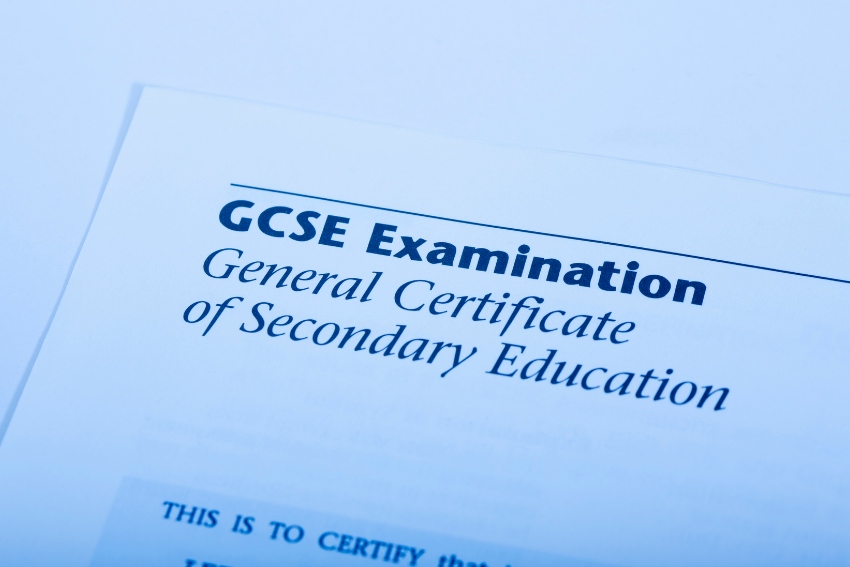Top 10 Easiest GCSE Subjects
What are GCSE Subjects?
There are a large number of GCSE subjects available for students to choose from. Core subjects include English, Mathematics, and Science (which is often broken down into separate subjects such as Physics, Chemistry, and Biology).
Optional subjects can vary, but commonly include languages (such as French, Spanish, and German), humanities (such as History, Geography, and Religious Studies), and creative arts (such as Art, Music, and Drama).
Some schools may also offer vocational subjects such as Business Studies, Health and Social Care, or Engineering. The number of subjects offered can vary depending on the school and the exam board.
While selecting GCSE subjects, it’s important to focus on your interests and future goals rather than just opting for subjects perceived as ‘easy’. The right choices will not only be more enjoyable but also pave the way for your sixth form and university aspirations.
Easiest GCSE Subjects
GCSE Geography

The GCSE Geography textbook is well-written and easy to follow. The subject matter is relevant to everyday life and often familiar to students. Additionally, GCSE Geography involves analysing data that has already been collected or collecting your own data. The subject also includes creating and examining models as a part of the learning process.
In 2023, 24.5 percent of GCSE Geography entries achieved a grade 7/A or above, and 64.8 percent achieved a pass. This is compared to 30.3 percent and 72.1 percent in 2022, respectively.
GCSE Film Studies

In today’s digital age, Film Studies has become an increasingly relevant and popular subject. With the rise of streaming services, video editing software, and social media platforms, students are already familiar with many of the concepts taught in Film Studies, such as editing, context, and visual storytelling.
The subject also involves creating a portfolio that includes a film extract, a screenplay extract, and a shooting script. This practical element allows students to apply their knowledge and understanding of film to their own creative endeavours.
Film Studies is a fascinating and rewarding subject that empowers students to become critical viewers and active participants in the world of filmmaking.
GCSE Religious Studies

GCSE Religious Studies covers two main areas: the basic beliefs of various religions, including Christianity, Islam, Buddhism, Hinduism, Sikhism and Judaism, and philosophical and ethical themes such as the Existence of God, Crime and Punishment, Human Rights and Social Justice and Relationships and Families.
One of the reasons why GCSE Religious Studies is considered relatively easy is that it is highly relevant to everyday life and many individuals have some knowledge of the beliefs and practices of different religions.
The exams are mainly composed of essay-based questions. If you possess strong writing skills, the ability to present your opinions persuasively and back them up with evidence, then Religious Studies will likely be an easy subject for you. Additional information about the subject can be found here.
GCSE Media Studies

Media Studies involves the examination of media language, representation, industries, and audiences. Students explore various media products including television, film, radio, newspapers, magazines, advertisements, and video games.
Many people are already familiar with different types of media products and their characteristics, making the subject relatively easy to understand. The exams mainly consist of analysing various media products, but the level and depth of analysis is not very advanced.
According to the AQA specification, written exams make up 70% of the grade and 30% of the grade is based on coursework which is relatively easy to ace as students have ample time and access to a wide range of resources.
The course does not involve any complex maths or science, and classes are typically interactive with plenty of discussions, projects, and presentations. The syllabus is also relatively short compared to other subjects.
If you’re looking for an easy, enjoyable, and straightforward subject, Media Studies may be a good choice.
Learn More about: Advantages and Disadvantages of Private tuition
GCSE Hospitality and Catering

GCSE Hospitality and Catering is divided into two sections: the hospitality and catering industry, and the practical application of that knowledge. Students are expected to have a strong understanding of the industry and be able to apply it in real-world situations.
The theoretical aspect of the subject focuses on gaining knowledge about all aspects of the industry and making relevant suggestions for improvements. These suggestions must take into account factors such as legal and financial viability.
The practical side of GCSE Hospitality and Catering involves preparing nutritious dishes while keeping safety and presentation in mind. Students also learn other skills beyond the kitchen environment, such as hospitality.
The marking is relatively lenient, and many students find the subject to be easy. However, some students may struggle with applying their catering and hospitality skills in practice, which is an important aspect to master when studying this subject.
GCSE Business Studies

GCSE Business Studies delves into the intricate workings of businesses, from humble startups to multinational conglomerates. Students gain a comprehensive understanding of the various factors that shape a business’s success or failure, including finances, human resources, laws, and costs.
Critical analysis is a cornerstone of Business Studies, as students dissect businesses operating in diverse contexts. However, the level of analysis is not overly demanding, making it accessible to students with varying academic backgrounds. The subject matter is generally easy to grasp, often drawing upon common sense and real-world examples.
Examinations in Business Studies typically feature short answer and multiple-choice questions, primarily assessing students’ knowledge of fundamental concepts. Consistent study and practice will undoubtedly lead to positive exam outcomes.
Regarding mathematical requirements, Business Studies demands less advanced mathematical skills compared to subjects like Economics or Accounts. Students who have comfortably attained a grade 4 in GCSE Mathematics should encounter no significant mathematical hurdles in Business Studies.
GCSE Drama

Drama is one of the most enjoyable and fun subjects to take. Classes are interactive and involve lots of presentations, dramas, and discussions, allowing students to express their ideas and creativity.
Students will have the opportunity to learn about different genres, structures, characters, forms, styles, languages, sub-texts, pace, rhythms, as well as social, historical, and cultural contexts. They will also learn how meaning is communicated through various techniques such as the use of space, props and costumes, lighting, sound, and color.
A written exam, accounting for 40% of the grade, will assess students understanding of Drama. These questions are relatively easy and straightforward. The remaining 60% of the grade is based on two practical components where students are required to devise a drama and take on one of the following roles: performer, lighting designer, sound designer, set designer, costume designer, or puppet designer. This part of the subject is usually done in groups.
One of the reasons many students find GCSE Drama easy is that most of the grade comes from performance and design skills. There are usually ample resources and time to practice and perfect these skills. This means that most of the subject is devoid of exam anxiety.
GCSE Physical Education

GCSE Physical Education focuses on two main areas: the human body and movement in physical activity and sport, and the sociocultural influences and well-being in physical activity and sport.
The section on the human body and movement is based on Biology and covers topics such as the musculoskeletal and cardio-respiratory systems. These systems are studied in depth, but most of the questions asked do not require complex critical analysis, only recall of facts.
In this section, students will also learn about subtopics such as aerobic and anaerobic exercise, the effects of exercise, analyzing different joints and bones and their movements, measuring fitness, preventing injuries, and effectively collecting, presenting, and interpreting data.
The socio-cultural and well-being section focuses on sports psychology, mental preparation for optimal performance, engagement patterns of different social groups and the factors affecting participation, the commercialization of sports, ethical issues in sports, and overall health and fitness.
Overall, the content in GCSE Physical Education is relatively simple and easy to understand. Many students find the subject matter relevant to their lives and are familiar with a significant portion of it.
GCSE Design and Technology

GCSE Design and Technology is divided into three main sections: core technical principles, specialist technical principles, and designing and making principles. The core technical principles section covers topics such as new and emerging technologies, energy generation and storage, developments in new materials, and mechanical devices.
The specialist technical principles section delves deeper into the use and working properties of different materials and techniques. Finally, the designing and making principles unit teaches students how to design and create prototypes, investigate data, and consider environmental and social challenges. The subject is relatively easy, with straightforward content and a large portion of the grade based on a non-exam practical component.GCSE Sociology
GCSE Sociology is considered an easy subject as it mostly involves the study of human society and its various structures and functions. The subject content is highly relevant to our daily lives and many students find it easy to understand and relate to. The exams in sociology are mostly based on recalling facts, understanding theories and concepts and applying them to real-life scenarios.
There are no complex experiments or mathematical calculations required in the subject. Furthermore, the subject has a strong focus on case studies and research methods which allows students to better understand the subject matter. With the right revision and study techniques, students can easily excel in GCSE Sociology.
Find out our blog about Easiest A-levels: Easiest A-level Subjects
Which Exam Board is the Easiest for GCSEs?
It is difficult to determine an overall easiest exam board for GCSEs as it may vary depending on the subject. However, some sources suggest that Edexcel iGCSE is considered the easiest board to take English Language and Literature under.
t is said that the amount of writing required in the time limit of the exam can be difficult to cope with but the grade boundaries are considered reasonable. Other sources suggest that the AQA, Edexcel and OCR are considered top GCSE boards. It’s important to note that what may be easy for one student may not be the same for another and it’s best to research and compare the different exam boards and their approach to the subject before making a decision.
Read here for more tips on choosing GCSE subjects. If you still have questions or need extra help with choosing subjects or revising for GCSEs, you can always find an expert GCSE tutor who can help you ace your exams!
FAQ About Choosing GCSE Subjects
Are the easiest GCSE subjects the same for everyone?
No, the easiest GCSE subjects will vary depending on the individual student’s strengths and weaknesses. For example, a student who is good at writing may find GCSE English Language to be an easy subject, while a student who is good at practical work may find Design and Technology to be an easy subject.
What factors should I consider when choosing GCSE subjects?
When choosing GCSE subjects, it is important to consider the following factors:
- Your interests and skills – What subjects do you enjoy learning about? What are you good at?
- Your future plans – What subjects will help you achieve your career goals? What’s your dream university?
- The difficulty of the subject – How much work and memorisation is required?
- The workload – How much time will you need to dedicate to each subject?
Is it okay to choose easier GCSE subjects?
Yes, it is perfectly okay to choose easier GCSE subjects. There is no shame in choosing subjects that you are likely to succeed in. In fact, choosing easier subjects can help to reduce stress and anxiety, and it can also give you more time to focus on other subjects or activities.
I chose the easiest GCSE subjects, now – what are the easiest A-level subjects?
The easiest A-level is a matter of opinion, as different students have different strengths and weaknesses. However, some of the A-levels that are generally considered to be easier include:
- Classical Civilisation
- Environmental Science
- Food Studies
- Drama
- Geography
- Textiles
- Film Studies
- Sociology
- Information Technology (IT)
- Health and Social Care
- Media Studies
- Law
These subjects are often seen as easier because they have a lower workload, less memorisation required, or more practical coursework. However, it is important to note that all A-levels require hard work and dedication, and there is no guaranteed easy A.
What's the easiest GCSE subjects
- Geography
- Film Studies
- Religious Studies
- Media Studies
- Hospitality and Catering
- Business Studies
- Drama
- Physical Education
- Design and Technology
What is the best number of GCSEs to take?
You must select at least five subjects, though the majority of students opt for nine to ten. The precise count may fluctuate depending on your scholarly aptitude and the availability of resources at school.









